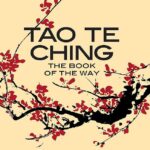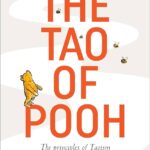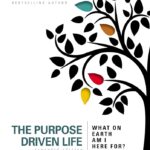Welcome to Thinkers Books, a place where we delve into the world of literature and thought-provoking ideas. Today, we will explore the essence of ‘The Daily Stoic’ by Ryan Holiday. This book masterfully combines ancient philosophy with modern practicality and promises to revolutionise how you approach life.
‘The Daily Stoic’ is an exceptional piece of literature that distils the wisdom of the Stoic philosophers into digestible daily doses. It presents a potent blend of philosophy and practicality, giving readers 366 days of reflections on wisdom, perseverance, and the art of living. Drawing from the teachings of Epictetus, Seneca, and Marcus Aurelius, the titans of Stoicism, Ryan Holiday offers us a roadmap for navigating life’s challenges with grace and resilience.
This book is divided into three parts: the discipline of perception, the field of action, and the discipline of the will. Each piece provides valuable insights into controlling our reactions, acting with integrity and purpose, and maintaining tranquillity in adversity by turning obstacles into opportunities.
To highlight the profound wisdom embedded in this book, here are the Top 5 learning points:
- Perception is Reality: This principle emphasises the power of our mindset and perspective. Each person’s reality is shaped by their perception of events, not the events themselves. The Stoics believed that we have the power to interpret any situation constructively or destructively. Therefore, we can significantly alter our reality and emotional well-being by viewing circumstances positively or constructively.
- Focus on What You Can Control: A central tenet of Stoicism, this principle encourages us to distinguish between what’s within our control and what’s beyond it. Things like other people’s opinions, natural disasters, or the past are beyond our control. However, our reactions, attitudes, and actions are within our control. Concentrating on these aspects can lead to a more effective and peaceful existence, free from unnecessary stress and anxiety.
- Virtue is the Highest Good: Stoicism teaches that virtue—wisdom, courage, justice, and temperance—is the highest form of success. Material wealth, fame, or status are temporary and unreliable, but our character and behaviour are always within our control. Cultivating virtue can lead to more fulfilling, meaningful, and ethical lives.
- Turn Obstacles into Opportunities: This principle embodies resilience and resourcefulness. Stoics believe there’s something to be learned from every situation, particularly the challenging ones. By adopting a mindset that views obstacles as opportunities for growth, we can use challenges as stepping stones towards personal and professional development. This idea is beautifully encapsulated in Ryan Holiday’s phrase, “The obstacle is the way.”
- Acceptance Leads to Tranquillity: Acceptance in Stoicism doesn’t mean resignation or complacency but understanding and acknowledging the reality of the situation. It involves recognising what we cannot change and focusing on how we can respond effectively. This attitude maintains our tranquillity and equips us to handle whatever life throws at us with grace and resilience.
What sets ‘The Daily Stoic’ apart is its practical approach. It doesn’t just introduce us to Stoicism; it guides us on how to live it. This book has been transformative, helping me view challenges as opportunities for growth and reminding me to focus on what truly matters: my character, actions, and responses.
As we conclude our exploration of ‘The Daily Stoic’, we invite you to delve deeper into the world of Stoicism and apply these principles to your daily life. We hope you found this summary insightful and urge you to explore more summaries from Thinkers Books. As Marcus Aurelius wisely said, “You have power over your mind, not outside events. Realise this, and you will find strength.” Let’s take this wisdom and apply it to our daily lives. Until our next literary journey, stay curious, stay resilient, and keep thinking.







